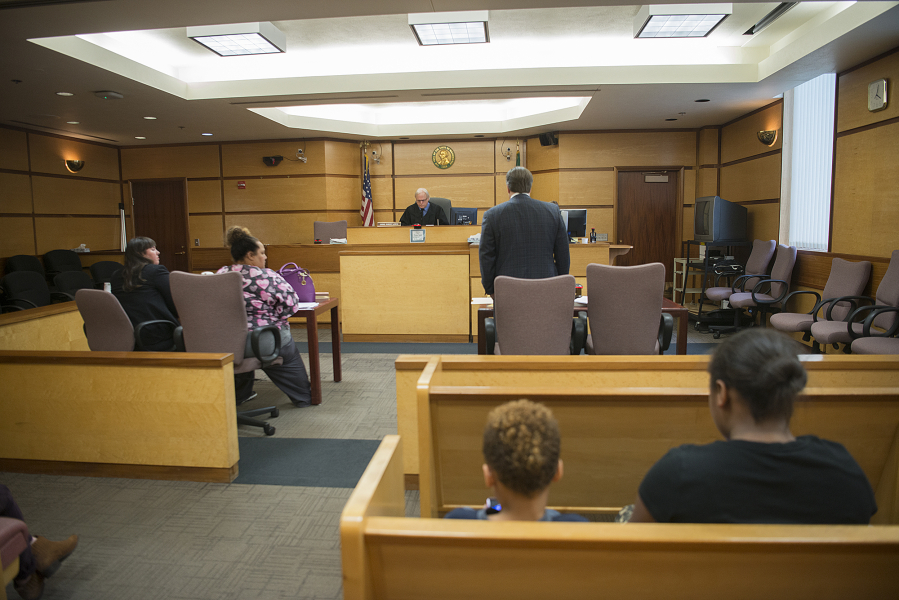Legal Removal of Unwelcome House Guests
Legal Removal of Unwelcome House Guests
Any uninformed attempt to “evict” an uncooperative and unwanted house guest can be frustrating and costly for both tenant and landlord. The first step is to establish whether the house guest is a lodger, a bonafide house guest, or a roommate. Legal definitions may vary slightly from state to state, so check with our local housing department for details.
Family members and friends can wear out their welcome through an over-extended stay. When this happens, the most general and direct option is to ask them to leave. Beyond a simple request, other legal options to remove a family member will be governed by the laws of your state.
Learn your rights as a Landlord on NationalEvictions.com Read our Blog. Learn the Process of an eviction in your State.
 Tenant or Licensee?
Tenant or Licensee?
Before you begin any legal action, you must first determine how the law classifies the unwanted family member: Are they a licensee or are they now a tenant? A family member or friend occupying your home may be considered a tenant regardless of whether a lease was signed or rent was paid. If the family member paid for things like utilities or food, the payment of these expenses can be considered rent. Accordingly, some state laws will treat them as a tenant. To remove them from the premises you will have to file a formal eviction proceeding (known as an unlawful detainer action) as in any other landlord-tenant relationship.
If no form of rent has been paid, many states permit you to simply ask the family member to leave and remove their belongings without any legal proceedings. However, in other states, someone who enters your home and stays with your permission will be classified as a licensee. This status grants the family member more rights than a general guest. To revoke the permission you gave them to remain on your property, you will need to go through the steps of a formal eviction to have them legally removed.
Preparing for Eviction
If your state’s laws classify the family member as a tenant or licensee, your next step is to prepare for an eviction, or unlawful detainer action. Before you can file suit, you must first serve your family member or friend with a notice to vacate (or notice to quit) the premises. This is a more formal way of asking the person to leave your home. The notice must be given before the suit is filed. In some states this notice can be for as little as 3 days prior, in others, as much as 30 days. Each state has its own rules regarding how and when to serve the notice. Be sure to follow all legally required steps. If your family member or friend fails to leave by the requested date, you can then file an eviction petition.
Once you file your petition, you must request an unlawful detainer hearing. This is a short court hearing in which you explain the reason for the eviction and present evidence of the prior notices to vacate. If the judge agrees with you, the judge will issue an order of eviction and a writ of possession (or your state’s equivalent). The order will usually set a vacate date for the family member or friend. If they still refuse to leave in violation of the order, you can then call law enforcement and to have them removed, using physical force if necessary.
Eviction or unlawful detainer actions are not generally complicated lawsuits. However, the rules of tenancy and procedure vary by state. Before jumping into a lawsuit, you should speak with an attorney in your area to learn your state’s rules and local procedures. They can advise you on the correct legal steps required in your jurisdiction. While having an attorney represent you in this type of case is not mandatory, you can avoid more problems by having one. If you fail to comply with all of your state’s eviction procedures you will delay removal of the unwanted guest. You may even find yourself on the receiving end of a lawsuit for unlawful eviction. Remember, follow the law and don’t be tempted to use self-help measures such as changing the locks or physically removing the person yourself.
Protective Order
Finally, if a family member or friend living in your home is abusive and putting you in fear for your safety, the quickest temporary solution under such circumstances is to apply for a protective order from your local family court or criminal court. Depending on the laws in your state, a protective order can exclude the unwanted family member from using the residence for 30 days or for a number of years. Even if a protective order is granted, you should still consider eviction proceedings to remove the unwanted family member permanently.
Rights of Homeowners
In general, if you own and live in the dwelling unit or home, and the individual rents a room in the dwelling, he or she is considered a lodger. As a homeowner, you have the right to terminate the lodger’s tenancy by written notice to vacate. If you are unsure of what the notice should outline, written notice to vacate templates are readily available through a number of reputable online sources.
Written notice is usually served with a 30 day notice period. Once the period expires, any agreement that you may have with the lodger is terminated by operation of the law. Homeowners in these cases are also entitled to police assistance in removing the individual from the home. Formal eviction procedures are not required in these cases.
Rights of Renters
If you are renting a home or apartment, working on a solution within the letter of the law can be more difficult. Lodging laws do not apply to renters. Renters do not own the unit or home, so they are not entitled to the same legal options as homeowners. If you have a house guest and would like them to leave, you must establish whether the guest is a roommate or truly a guest. Unfortunately, the guest can delay any legal action by fabricating a story about an oral rental agreement between you, the renter, and the guest.
To have the house guest removed via legal proceedings, the renter must establish that he or she has control over the unit and is responsible for maintaining the unit. The renter must also prove that he or she is the only person with a set of keys to the unit, that he or she is the only person paying the rent, and that he or she has been living in the unit from the beginning of the lease up to the date of the complaint. Unfortunately, there is a catch. If the house guest has been living in the unit for more than 30 days, the courts might consider him or her a tenant. In this case, you may only terminate tenancy by formal written notice, regardless of whether the individual’s name is on the lease. If the house guest (who is now considered a tenant) does not vacate within the notice period, you will have to begin formal eviction proceedings.
For unwanted house guests that have been living in the rental unit or home for less than 30 days, the laws are disturbingly sparse. Although the law might not recognize the individual as a tenant, any physical attempt to remove the individual could result in a lawsuit. For example, if you place the individual’s property on the lawn or street and change the locks, the individual might attempt to sue for unlawful eviction by claiming that he had a verbal agreement with you. The individual may also attempt to sue for any perceived damages to his or her property. In cases such as this, the best way to protect yourself would be to serve a formal written notice of termination of tenancy. If you feel that written notice will not be enough to get rid of the house guest, do not wait until the last minute to begin the eviction process. Be prepared to file eviction papers as soon as the notice period ends.
Tags: Eviction Information, Landlord Information




 A companion measure that requires landlords to more throughly account for security deposit funds withheld for repairs passed along the same line. That ordinance also allows tenants to pay security deposits in installments over three months.
A companion measure that requires landlords to more throughly account for security deposit funds withheld for repairs passed along the same line. That ordinance also allows tenants to pay security deposits in installments over three months.

 The Chicago Residential Landlord and Tenant Ordinance provides explicit self-help remedies that tenants should use when they discover defective conditions in their apartments. It is essential to contact an attorney to begin using these remedies, but because there exists the possibility of legal action by the landlord, tenants should document and keep records of their activities.
The Chicago Residential Landlord and Tenant Ordinance provides explicit self-help remedies that tenants should use when they discover defective conditions in their apartments. It is essential to contact an attorney to begin using these remedies, but because there exists the possibility of legal action by the landlord, tenants should document and keep records of their activities.
 While it can be tempting to simply throw it all away and move on with your life, this may not always be the best solution. There are specific legal steps that you must take, and your tenant may even owe you money for their actions.
While it can be tempting to simply throw it all away and move on with your life, this may not always be the best solution. There are specific legal steps that you must take, and your tenant may even owe you money for their actions.









